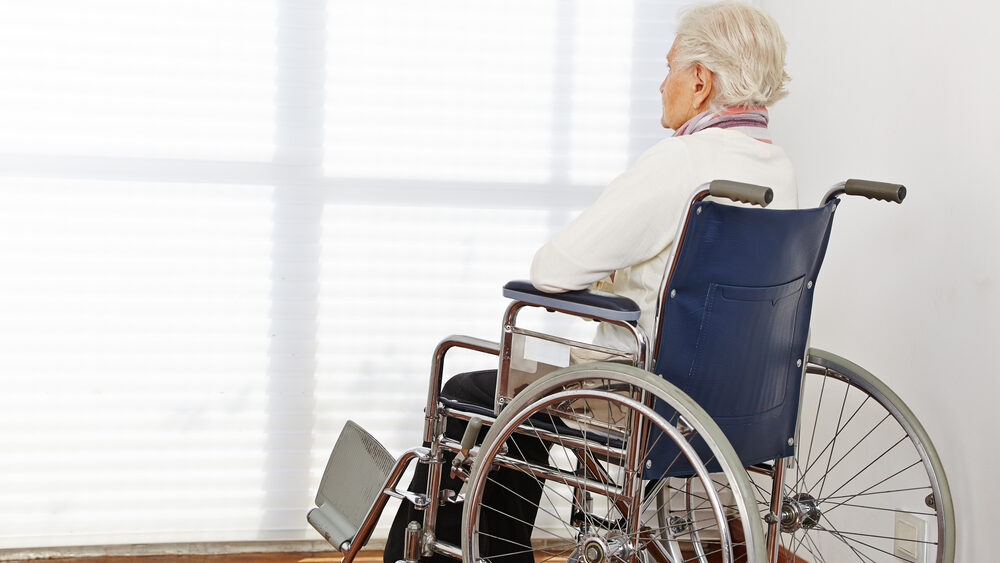Reporting Nursing Home Abuse: A Step-by-Step Guide
May 26, 2023

Ensuring the safety and well-being of our loved ones in nursing homes is of utmost importance. Unfortunately, instances of nursing home abuse and neglect can occur, leaving vulnerable residents in distress. It is crucial to take immediate action if you suspect abuse. In this step-by-step guide, we will walk you through the process of reporting nursing home abuse in Pennsylvania, empowering you to protect your loved ones and seek justice.
Step 1: Recognizing Nursing Home Abuse
The first step in addressing nursing home abuse is recognizing the signs. Keep a vigilant eye out for physical personal injuries, unexplained bruises, malnutrition, sudden weight loss, emotional withdrawal, unexplained changes in behavior, poor hygiene, medication errors, or staff neglect. It is crucial to document any concerns with specific details, such as dates, times, and descriptions, to strengthen your case.
Step 2: Gather Relevant Information
Before reporting nursing home abuse, gather all relevant information. Obtain your loved one’s medical records, incident reports, photographs of injuries or unsanitary conditions, and any other evidence that supports your suspicions. These records will be invaluable during the reporting process.
Step 3: Immediate Action
If your loved one is in immediate danger, contact 911 or the local emergency services. Ensure their safety and seek medical attention if necessary. Your loved one’s well-being should be the top priority.
Step 4: Report to the Facility
Notify the nursing home administration about your concerns. It is important to document your communication in writing, including the date, time, and individuals involved. Request a written response from the facility regarding the actions they will take to investigate and address the issue.
Step 5: Contact Pennsylvania Department of Health
To ensure an impartial investigation, report the abuse to the Pennsylvania Department of Health, which oversees nursing home facilities and can conduct its own investigations. Provide them with all the evidence and information you have gathered, including the nursing home’s name, location, and any relevant staff members involved.
Step 6: Consult with an Attorney
Consider seeking the advice of a reputable attorney who specializes in nursing home abuse cases. An attorney can guide you through the legal process, protect your rights, and advocate for your loved one’s interests. They can help you navigate complex laws, gather additional evidence, and seek compensation if necessary.
Step 7: Notify Adult Protective Services (APS)
Contact your local Adult Protective Services agency to report the abuse. APS agencies are responsible for protecting vulnerable adults and can initiate their own investigations. Provide them with all the details and evidence you have gathered so far.
8. Follow-Up and Document:
Keep a detailed record of all conversations, correspondences, and actions taken throughout the reporting process. Follow up with the relevant agencies to ensure progress is being made in investigating and addressing the abuse. Persistence and documentation are key to holding those responsible accountable.
Additional Considerations:
Premises Liability:
If nursing home abuse involves slip and fall accidents, it is important to understand premises liability. Nursing homes have a duty to maintain safe premises and prevent hazards. If your loved one’s injuries are a result of negligence on the part of the facility, premises liability laws may apply.
Wrongful Death and Catastrophic Injury Claims:
In tragic cases where nursing home abuse has resulted in wrongful death or catastrophic injuries, understanding your legal rights is crucial. Wrongful death claims seek compensation for the loss of a loved one due to negligence or intentional harm. Catastrophic injury claims aim to recover damages for severe injuries that have a significant and lasting impact on the victim’s life.
Defective Products and Liability:
In some cases, nursing home abuse may involve the use of defective products that cause harm to residents. Understanding product liability laws is crucial to holding manufacturers and distributors accountable for producing or selling defective products. If you suspect a defective product is involved in the abuse, consult with an attorney experienced in product liability cases to explore your legal options.
Key Takeaway:
Reporting nursing home abuse in Pennsylvania is a vital step in safeguarding the well-being of your loved ones and seeking justice. By recognizing the signs, gathering evidence, and following the step-by-step guide outlined above, you can take the necessary actions to protect your family members. Remember to consult with an attorney for expert guidance and support throughout the process. Together, we can work towards ensuring the safety and dignity of nursing home residents in Pennsylvania.
Contact Purchase, George & Murphey, P.C. Today To Schedule A Free Consultation About Your Nursing Home Abuse Lawsuit
Do you suspect a loved one is the victim of nursing home abuse? At Purchase, George & Murphey, P.C., we are here to help. Our experienced attorneys specialize in nursing home abuse cases and are committed to fighting for the rights of vulnerable residents.
When it comes to reporting nursing home abuse, you don’t have to face it alone. Our compassionate legal team will stand by your side, providing the support and guidance you need throughout the entire process. We understand the complexities of Pennsylvania’s laws and will use our expertise to ensure your loved ones’ voices are heard.
With Purchase, George & Murphey, P.C., you can expect personalized attention and a relentless pursuit of justice. We will meticulously gather evidence, advocate for your case, and work tirelessly to hold negligent parties accountable. Our dedication to achieving the best possible outcome for our clients sets us apart. Contact us today and let us fight for your loved ones. Together, we can make a lasting impact and help prevent nursing home abuse in Pennsylvania.